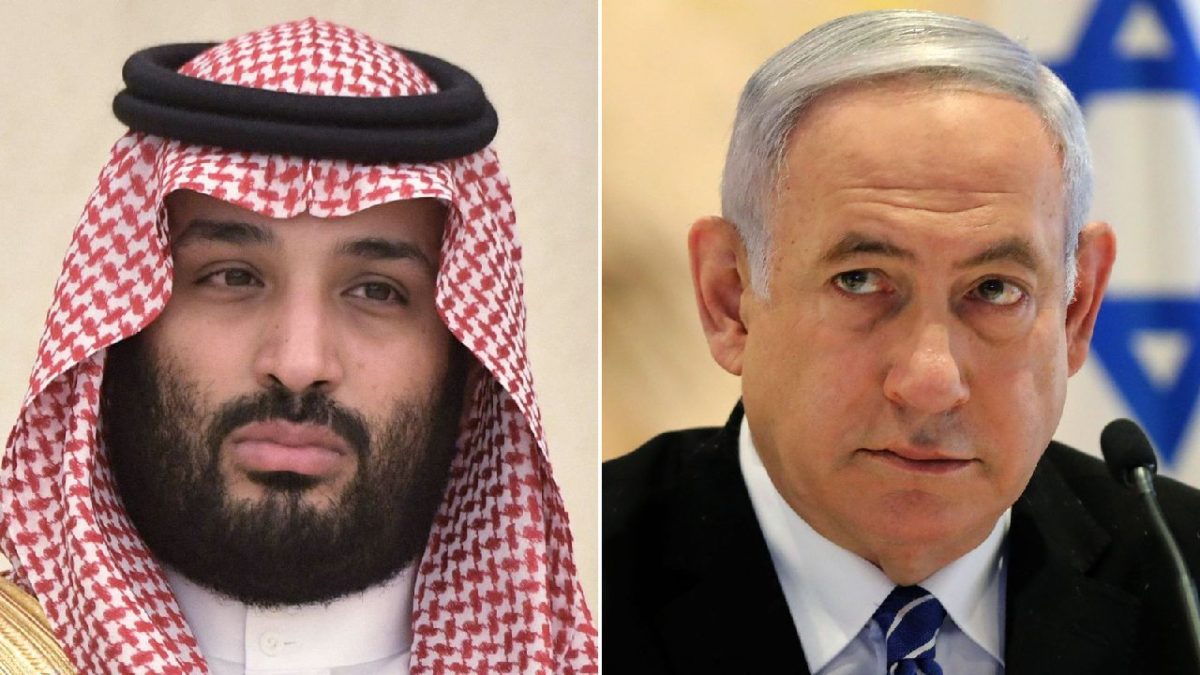White House spokesperson John Kirby said on Wednesday that Riyadh and Tel Aviv have not agreed on a shared framework for negotiations, playing down speculation over a possible deal that news outlets have reported could include a US security guarantee for Saudi Arabia.
“There’s still a lot of discussing to happen here,” Kirby told reporters.
“There is no agreed-to set of negotiations, there’s no agreed-to framework to codify normalisation or any of the other security considerations that we and our friends have in the region,” he added.
Fostering stronger ties between Saudi Arabia and Israel – two top US allies in the Middle East – has become a central focus of the Biden administration’s policy in the region.
While Washington has not commented on the specifics of a potential Israeli-Saudi normalisation agreement, US officials have said they are seeking such a pact.
But critics have questioned whether making concessions to move a deal forward is in the US interest and whether an agreement would include significant gains for the Palestinians.
Kirby stated on Wednesday that Israeli Prime Minister Benjamin Netanyahu will meet Biden “somewhere in the US” later this year, but did not specify whether a meeting would take place at the White House.
US State Department spokesperson Matthew Miller also said on Wednesday that there had been “productive conversations” on a possible Israeli-Saudi deal and he expected more talks to take place in the coming weeks.
“We’ve made progress on a number of issues. I’m not going to get into what the progress is, but it is still a long road to go, with an uncertain future,” Miller added.
In the past, the possibility of normalisation with Arab countries was seen as a form of leverage that could be used to extract concessions from Israel towards the creation of an independent Palestinian state.
But Palestinians, citing the hardline policies of Netanyahu’s far-right government, have expressed little confidence that closer ties between Saudi Arabia and Israel will translate into significant changes to their situation.
Israel has continued to expand illegal settlements in the occupied Palestinian territories, and Palestinians in the West Bank have been hit by the deadliest wave of Israeli military violence in years.
Still, the US has made promoting so-called Israeli “normalisation” deals a key plank of its Middle East policy.
And the Biden administration has thrown its support behind what are known as the Abraham Accords, a series of agreements that were brokered between Israel and Arab countries under Biden’s predecessor, Donald Trump.
During a visit to Washington, DC last month, Israeli President Isaac Herzog thanked the US “for working towards establishing peaceful relations between Israel and the Kingdom of Saudi Arabia — a leading nation in the region and in the Muslim world”.
“We pray for this moment to come,” Herzog said during an address to the US Congress.
For its part, the Saudi government has not officially changed its position in support of the Arab Peace Initiative, which conditions recognition of Israel on establishing a Palestinian state and finding a “fair solution” for Palestinian refugees.
It remains unclear what would be included in a potential Israeli-Saudi normalisation deal.
In late July, New York Times columnist Thomas Friedman said Biden was pursuing a plan that involves giving Saudi Arabia NATO-like security guarantees and helping the Persian Gulf kingdom kick-start a civilian nuclear programme.
Axios journalist Barak Ravid also reported on Wednesday that Netanyahu is seeking a US security guarantee as part of the push for normalisation.
“The exact parameters of Neyanyahu’s proposed agreement are not known,” Ravid reported, but he stated Israeli officials have said the proposal will focus on US security guarantees around perceived threats from Iran.
